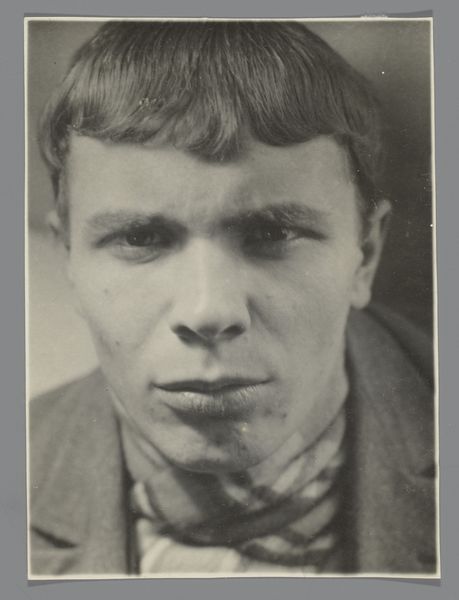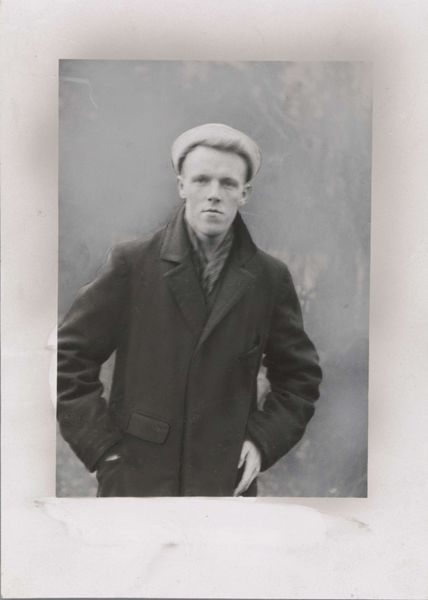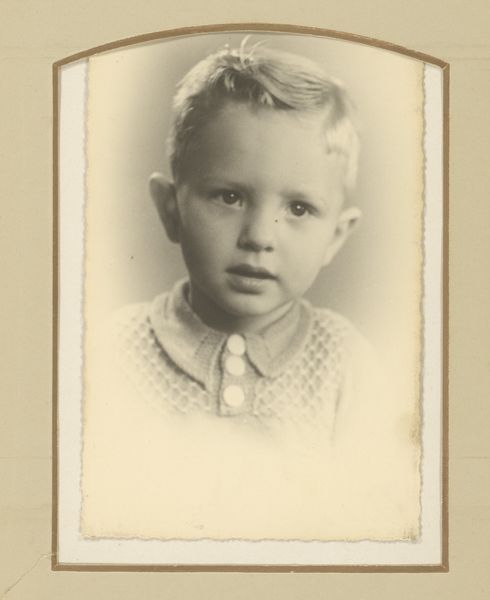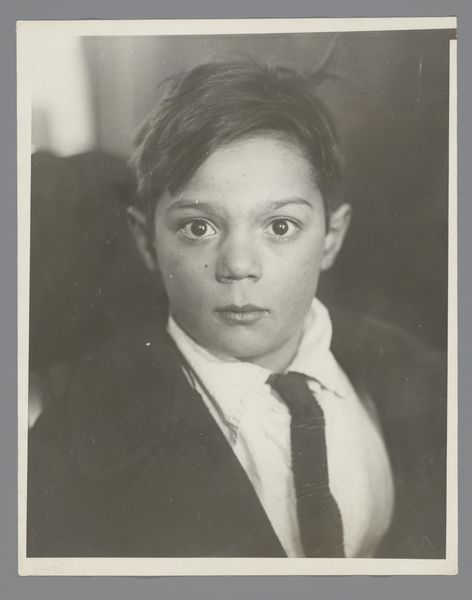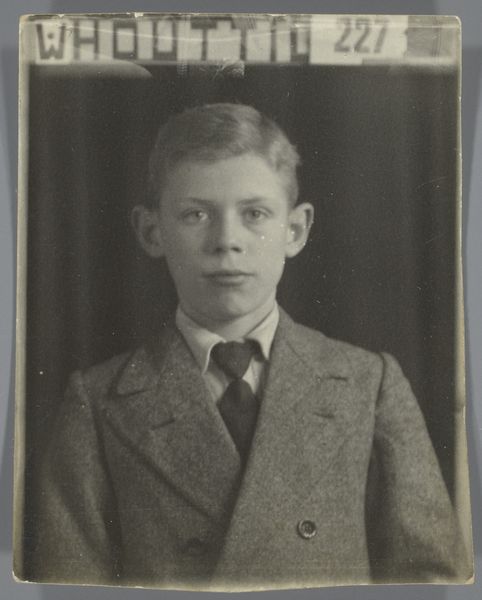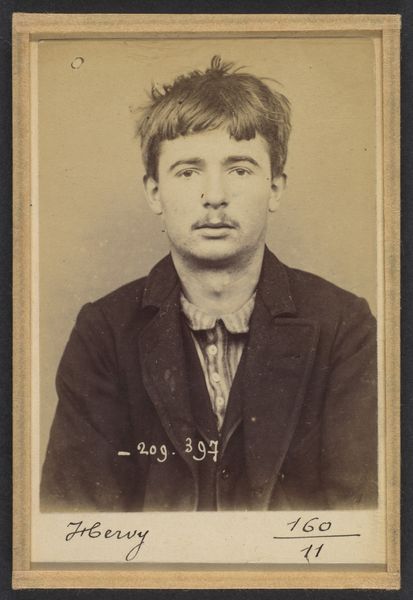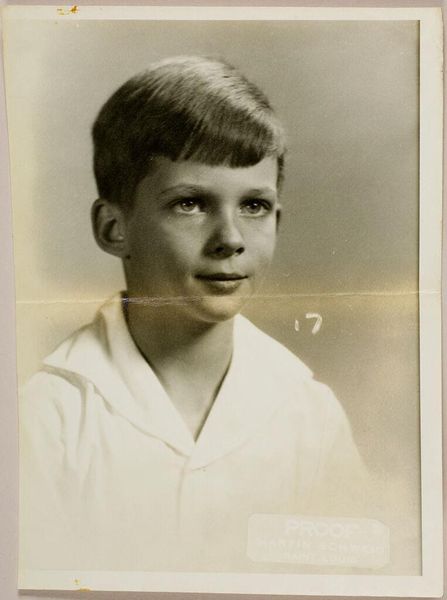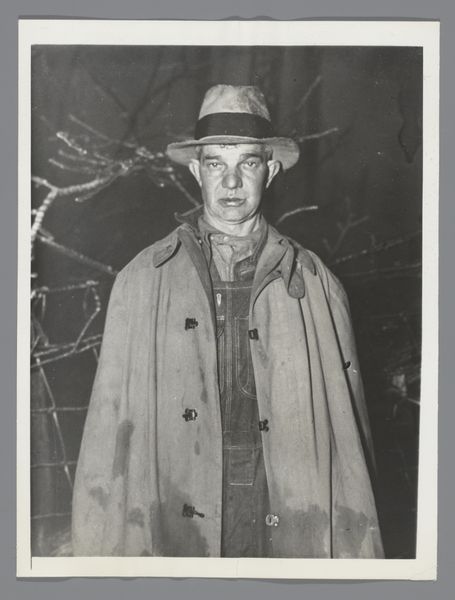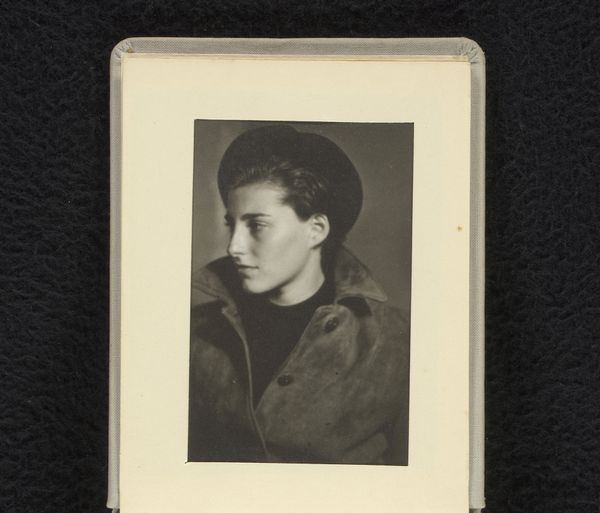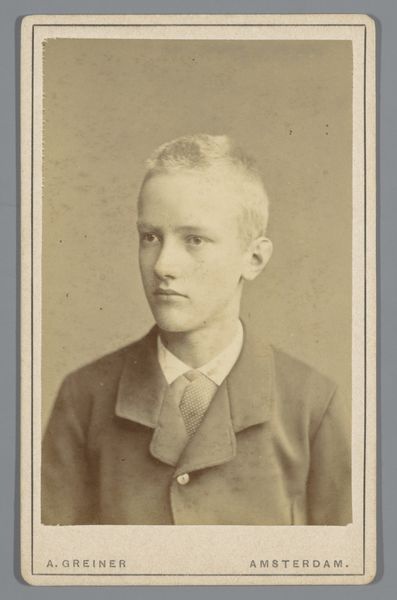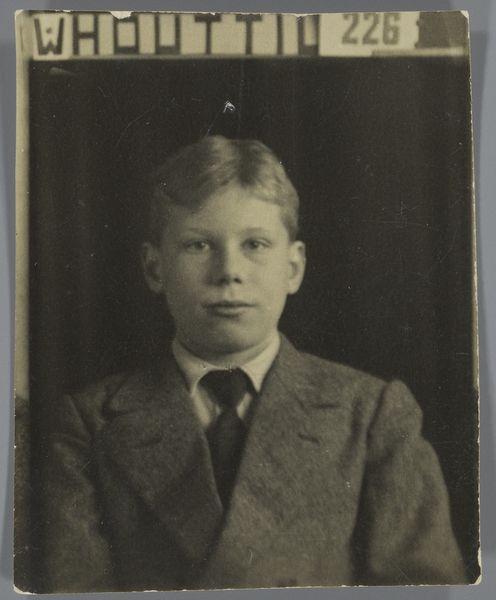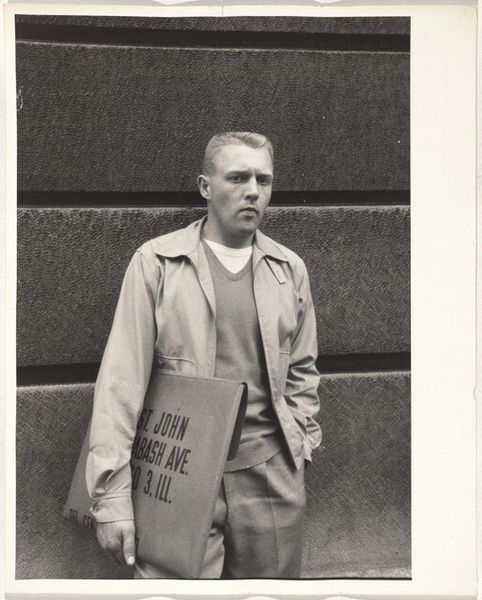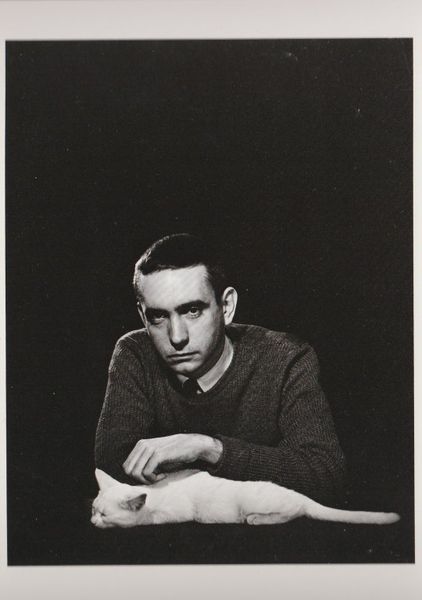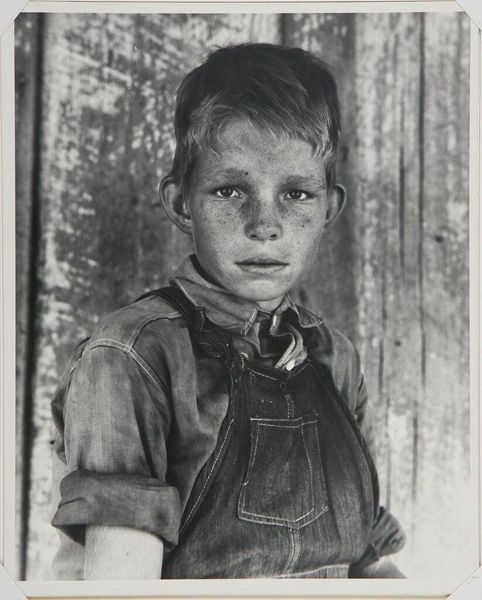
photography, gelatin-silver-print
#
portrait
#
photography
#
gelatin-silver-print
#
modernism
#
realism
Dimensions: height 216 mm, width 165 mm, height 205 mm, width 158 mm
Copyright: Rijks Museum: Open Domain
Editor: Here we have an gelatin-silver print portrait from 1932, entitled "Portret van Clarence Woolry". It's quite a stark image; his gaze is so direct and a little confrontational. How do you interpret this work, particularly given its historical context? Curator: That direct gaze is crucial, isn't it? Consider this photograph within the context of the 1930s. The documentary photography movement was gaining momentum, focusing on capturing unvarnished realities during the Depression. The choice to photograph someone like Clarence with such apparent realism is not accidental. Does it evoke a sense of social awareness or a desire to portray a particular truth about that era? Editor: It definitely feels intentional. It avoids idealization, showing a raw, perhaps even vulnerable individual. I guess it's resisting glamour, in contrast with other portraiture styles. Curator: Precisely. And how might the anonymity of the photographer contribute to its message? Without a known artistic "author," does it shift the focus even more towards Clarence himself, and perhaps the broader socio-economic realities he represents? Editor: Good point, the unknown authorship places emphasis on Clarence. It almost transforms him into a symbol of the average person during that era. Curator: It also encourages viewers to actively engage with questions surrounding representation, class, and the very act of seeing during a tumultuous period. By looking at Clarence we might be reflecting on our own society. Editor: It makes me think about the politics inherent in choosing who and how we depict individuals and groups. Thank you, I am seeing the complexities. Curator: And hopefully understanding how artistic choices reflect and shape historical narratives.
Comments
No comments
Be the first to comment and join the conversation on the ultimate creative platform.
